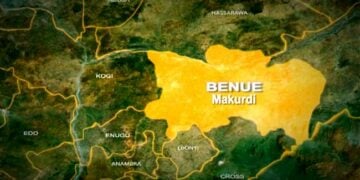Nigeria’s business confidence index dipped in May, due to persistent energy shortages and worsening security concerns that have constrained agricultural output and overall business expansion, the NESG-Stanbic IBTC Business Confidence Monitor (BCM) has shown.
The Current Business Index fell to +9.78 in May from +12.29 in April, reflecting this slowdown.
Key challenges cited include ongoing power supply shortages, limited financing access, high commercial lease costs, inadequate foreign exchange availability, inconsistent economic policies, and escalating insecurity across the country.
The agricultural sector was notably affected, registering a negative performance index of -1.77, impacted by structural issues and climate change effects such as droughts and erratic rainfall.
Despite the decline, some sectors like manufacturing, trade, and services showed resilience, with manufacturing maintaining positive momentum. Businesses reported improvements in production levels, operating profits, cash flow, and employment for the fifth consecutive month, supporting a cautiously optimistic outlook. The Business Confidence Measure for future expectations rose slightly to +32.44, indicating anticipation of improvement in the next one to three months.
However, risks remain significant. Rising inflation, high interest rates, weak consumer purchasing power, and security challenges could dampen economic recovery in the latter half of 2025. The energy sector, a critical revenue source, continues to suffer disruptions from insecurity, further undermining business confidence and growth prospects.
“Nigeria’s business environment sustained its positive trajectory in May 2025, although with a slight moderation in momentum compared to previous months,” the report stated.
However, the report revealed that these sectors experienced a slowdown in performance, except manufacturing, which remained resilient, compared to April 2025. Similarly, the cost of doing business declined to +38.54 in May from +51.79 in April.
“The most significant negative indicators were a sharp reduction in investment confidence (-25.61) and declining price levels (-18.15), contributing to slower business activity and growth during the month. Nigerian businesses have continued to witness a turnaround in their operations as key reforms, including the unification of the exchange rate has seen the naira more predictable than years before.
Firms are reporting FX gains and slowing cost pressures which is expected to improve expansion and general confidence in the economy. Business outlook for the near future revealed a slight increase from the figure posted in April 2025.
The Business Confidence Measure (BCM) posted a positive index of +32.44 from +28.04, reflecting expectations of improvement in the next one to three months.
However, risks remain. According to the report, rising inflation, high interest rates, and weak consumer purchasing power, could dampen the pace of economic recovery in the second half of 2025 despite the prevailing optimistic sentiment.











